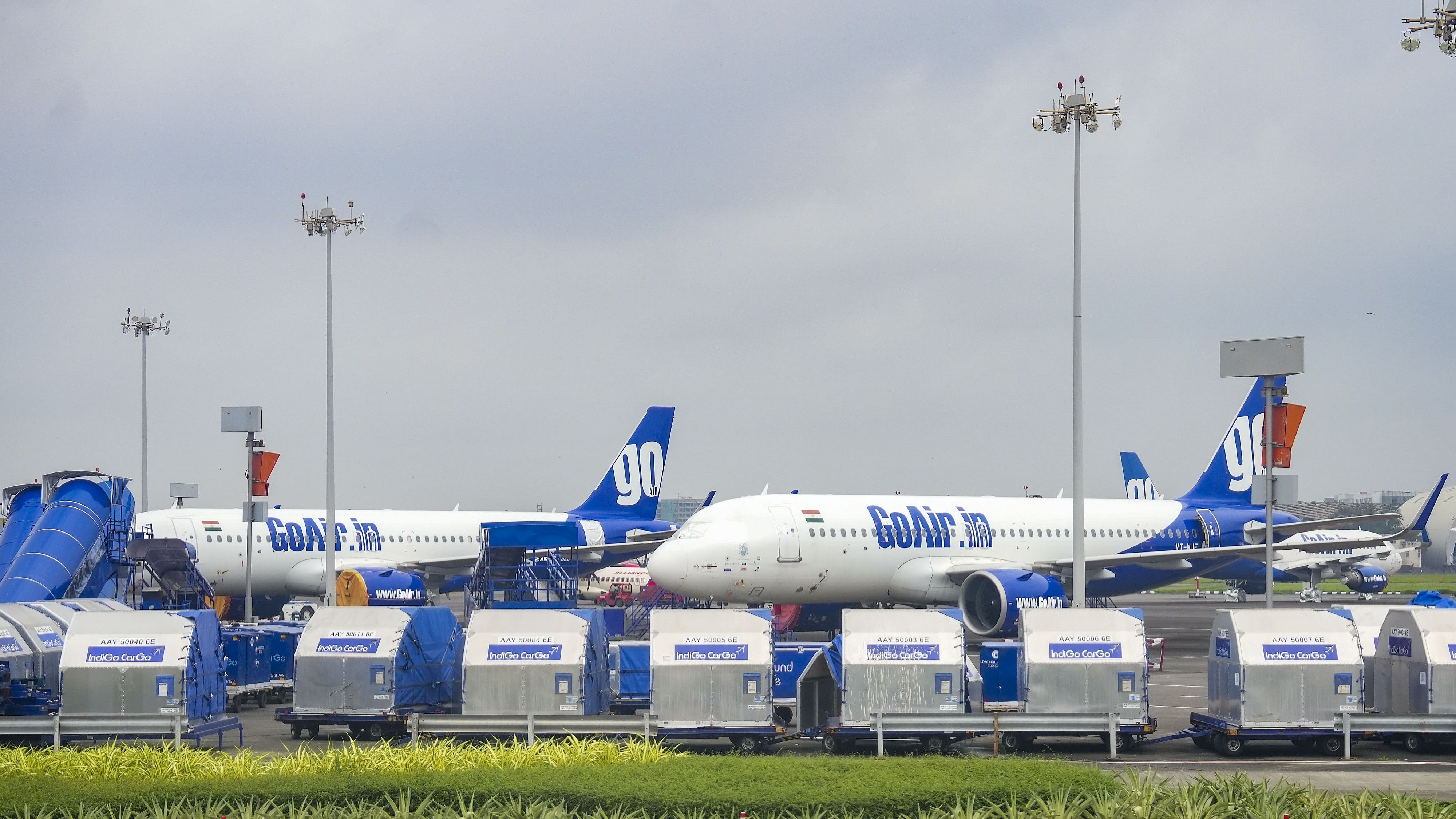
Mumbai: GoAir aircraft parked at the apron of Mumbai airport, Monday, Oct. 2, 2023.
PTI Photo
Going forward, Indian airports might not see stranded aircraft collecting dust after an airline goes bankrupt. In a fresh gazette notification on October 03, 2023, the Ministry of Corporate Affairs informed that lessors can repossess their planes after an airline files for bankruptcy.
“........The Central Government hereby notifies that the provisions of sub-section (1) of section 14 of the Insolvency and Bankruptcy Code, 2016 (31 of 2016), shall not apply to transactions, arrangements or agreements, under the Convention and the Protocol, relating to aircraft, aircraft engines, airframes and helicopters,” the notification informed.
As per the notification, Indian airlines can no longer hold on leased aircraft and engines under the limited-period asset protection offered by the Insolvency and Bankruptcy Code (IBC).
This comes after Aviation Working Group (AWG), a UK-based entity that monitors leasing and financing laws, cut India’s score on the compliance index to 2 from 3.5 out of 5 in what is its second downgrade for the country since May. Furthermore, it also assigned India a negative outlook “due to low confidence that Cape Town Convention will be enforced in accordance with its terms”. This downgrade means that Indian airlines leasing aircraft may have to pay a premium to secure assets.
While the notification is unclear on whether it is applicable to pending cases like Go First, it comes as a huge relief for other Indian carriers, especially the newer ones, as the Go First fiasco had made lenders wary of giving aircraft and engines to them.
“Believably, since there would be no stay on alternate proceedings now, for example, initiation of money recovery proceedings which is usually barred once moratorium kicks in, such aircraft leasing companies could now file for money recovery in civil courts, pursuant to taking hold of the aircraft after non-payment of lease dues,” explained Bharat S Kumar, Associate Partner, Saikrishna and Associates.
Not in a state to meet its financial obligations, Go First filed for voluntary insolvency resolution early in May, which temporarily prohibited lessors from repossessing aircraft, creditors from seeking back money and airports from taking away its slot among other things.
With no clarity on Go First’s business resumption, aircraft lessors moved the National Company Law Appellate Tribunal (NCLAT) and also approached the Indian civil aviation watchdog Directorate General of Civil Aviation (DGCA) to repossess over 45 aircraft that they had leased to a bankrupt airline. If implemented retrospectively, the move may impact Go First’s insolvency resolution proceedings, allowing lessors to take back their aircraft.